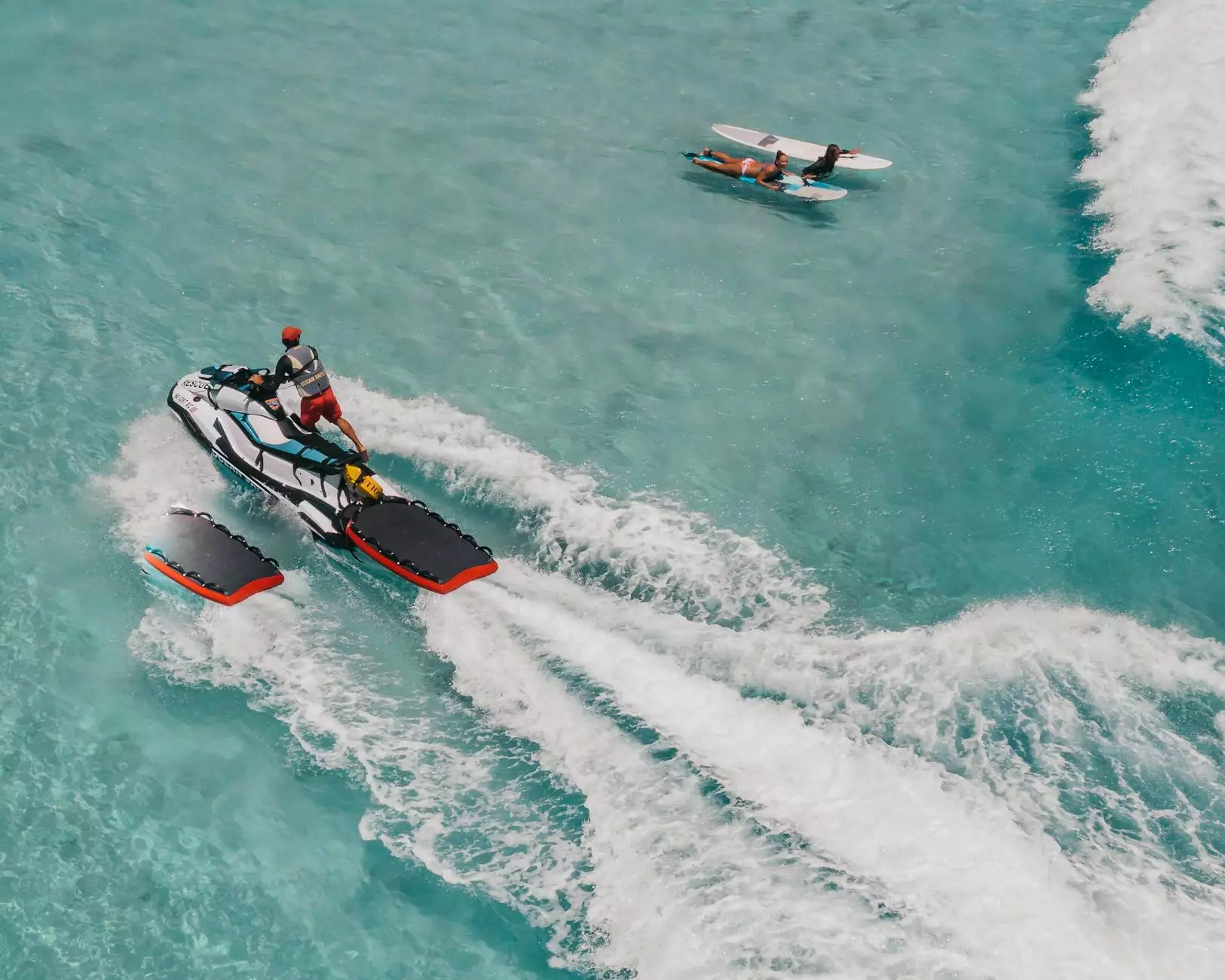Understanding Jet Ski Accidents on the Hudson River

The Hudson River is an iconic waterway that attracts numerous water sports enthusiasts each year, with jet skiing being one of the most exhilarating activities. However, alongside that excitement, it is essential to address the serious implications of jet ski accidents that can occur in this vibrant locale. In this article, we will dive deep into the factors surrounding the jet ski accident Hudson River, understand the legal landscape, discuss safety measures, and find out how to seek compensation in the event of an accident.
1. The Attraction of Jet Skiing on the Hudson River
Jet skiing offers a unique way to experience the stunning scenery of the Hudson River. The thrill of cruising across the water, combined with the beauty of the surrounding landscape, draws many individuals and families to this activity. Unfortunately, the enjoyment of jet skiing can quickly turn into a tragedy if proper precautions are not taken. Understanding the risks involved is the first step toward prevention.
1.1. The Popularity of Jet Skiing
- Scenic Views: The Hudson River offers breathtaking vistas that enhance the jet skiing experience.
- Accessibility: With various rental services available, jet skiing is accessible to both locals and tourists.
- Adventure: Jet skiing provides an adrenaline rush that many outdoor sports enthusiasts seek.
2. Common Causes of Jet Ski Accidents
Despite its appeal, the risk of encountering a jet ski accident is present. Understanding the common causes is vital for preventing them. Below are some frequent factors contributing to incidents:
2.1. Operator Inexperience
Many accidents occur due to the inexperience of the operator. New riders may not be familiar with the operational controls or waterways, leading to poor decision-making on the water.
2.2. Alcohol Impairment
Operating a jet ski under the influence of alcohol significantly impairs judgment and reaction times, escalating the likelihood of a crash. Always remember that alcohol and water activities do not mix well.
2.3. Excessive Speed
Riding at high speeds can lead to loss of control, making it essential to adhere to speed limits and practice safe riding techniques.
2.4. Poor Weather Conditions
Weather plays an essential role in water sports safety. Fog, rain, or strong winds can create hazardous conditions that are often overlooked by riders.
2.5. Collisions with Other Watercraft
With many watercraft sharing the Hudson River, collisions can occur, especially if operators do not maintain proper awareness.
3. Legal Aspects of Jet Ski Accidents
When a jet ski accident occurs, understanding the legal aspects becomes imperative, especially for those injured or whose property is damaged. This guide outlines what to expect and how to navigate the aftermath.
3.1. Liability Determination
One of the first steps is determining who is liable for the accident. Factors to consider include:
- Operator Negligence: If the operator acted irresponsibly or failed to follow safety regulations.
- Manufacturer Defects: If the jet ski malfunctioned due to a manufacturing flaw.
- Water Conditions: If hazardous conditions were known and ignored by the operators involved.
3.2. Seeking Compensation
Victims of jet ski accidents often have the right to seek compensation for medical expenses, lost wages, and pain and suffering. It is crucial to consult with a personal injury lawyer with experience in handling jet ski accidents. These legal professionals can effectively guide you through the complexities of maritime law and ensure you receive any compensation owed.
4. Safety Tips for Jet Ski Users
Safety should always be the top priority when engaging in water sports. Here are some essential safety tips to consider:
4.1. Wear Personal Flotation Devices
Always wear a U.S. Coast Guard-approved life jacket while operating a jet ski. This is not just a suggestion but a legal requirement in many states.
4.2. Take a Safety Course
Enrolling in a jet skiing safety course can provide essential information about safe operations, navigation rules, and emergency procedures.
4.3. Avoid Alcohol Consumption
Operating a jet ski while under the influence is not only illegal but also incredibly dangerous. Stay sober to ensure your safety and the safety of others.
4.4. Check Weather Conditions
Always check the weather forecast before heading out on the water. Avoid jet skiing in inclement weather conditions.
4.5. Maintain Safe Distances
Keep a safe distance from other vessels and watercraft to avoid collisions. Awareness is key to ensuring a safe experience.
5. In the Event of an Accident
If you or someone you know is involved in a jet ski accident on the Hudson River, it is important to follow these steps:
5.1. Ensure Safety First
Check for injuries and ensure everyone is in a safe position. If there are serious injuries, call for emergency assistance immediately.
5.2. Document the Incident
Take photos of the scene, including any damages to the jet ski and injuries sustained. This documentation can be essential for any future legal claims.
5.3. Gather Information
Collect information from other parties involved in the accident, including their names, contact details, and insurance information.
5.4. Report the Accident
File a report with the local authorities if required. Documenting the accident legally can help in any future investigations or claims.
5.5. Consult with a Lawyer
A personal injury attorney specialized in boating accidents can help you understand your rights and options post-accident. Additionally, the law firm associated with midhudsoninjurylaw.com is well-versed in navigating these legal waters.
6. Conclusion
Jet skiing on the Hudson River can be a truly enriching experience, offering adventure and excitement. However, it is essential to remain vigilant about the potential risks and legal implications associated with jet ski accidents. By following safety guidelines, understanding liability, and consulting legal experts when necessary, you can enjoy the thrill of jet skiing while minimizing risks.
If you have been involved in a jet ski accident on the Hudson River, do not hesitate to reach out to experienced legal professionals to protect your rights and secure the compensation you deserve. Remember, safety first, adventure second!









